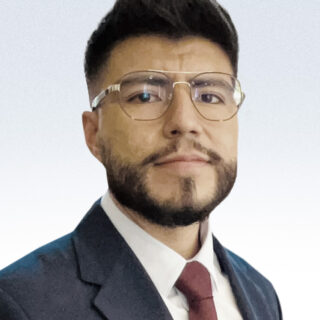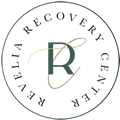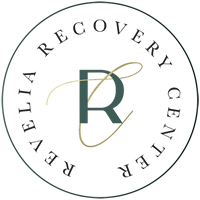Opiates are a class of drugs derived from the opium poppy plant. They are primarily used to relieve pain, but their powerful effects on the brain make them incredibly addictive.
Opiates include both naturally occurring compounds like morphine and codeine, as well as synthetic or semi-synthetic versions like oxycodone, hydrocodone, and fentanyl. Heroin, though illegal, is one of the most well-known opiates.
Types of opiates
Opiates are classified into:
- Natural opiates: Morphine, codeine
- Semi-synthetic opiates: Oxycodone, hydrocodone
- Fully synthetic opioids: Fentanyl, methadone
When prescribed correctly and used for short-term pain management, they can be effective. However, misuse can rapidly lead to dependence, overdose, or even death.
How Opiates Work in the Brain
Opiates attach to opioid receptors in the brain—areas that control pain and emotion. By activating these receptors, they block pain signals and create a surge of euphoria.
This pleasurable effect rewires the brain’s reward system. Over time, tolerance develops, and the body requires more of the drug simply to feel normal, fueling the cycle of addiction.
Legal vs Illegal Use of Opiates
Opiates are legally prescribed to treat severe pain, such as after surgery or for cancer-related discomfort. However, misuse happens when people:
- Take larger doses than prescribed
- Use someone else’s medication
- Take it for non-medical reasons
Illegally, opiates like heroin or illicitly manufactured fentanyl are sold on the streets, often mixed with other substances, drastically increasing the risk of overdose and death.
Why Are Opiates So Addictive?
Opiates cause a rapid and powerful surge of dopamine, the neurotransmitter responsible for pleasure. This effect is so intense that it can lead to addiction after just a few uses.
Addiction develops as:
- Tolerance builds, requiring higher doses
- Physical dependence sets in, causing withdrawal symptoms
- Psychological dependence grows, where life feels impossible without the drug
This cycle can quickly spiral, leaving individuals trapped in a dangerous pattern of abuse.
Signs and Symptoms of Opiate Addiction
Recognizing addiction early is key. Common signs include:
- Behavioral: Lying about drug use, doctor shopping, isolation
- Physical: Pinpoint pupils, drowsiness, constipation
- Psychological: Mood swings, anxiety, depression
Loved ones may notice missing pills, frequent sickness, or financial trouble. Early intervention saves lives.
Short-Term Effects of Opiates
Even short-term use can be dangerous. Immediate effects include:
- Euphoria and relaxation
- Slowed breathing and heart rate
- Nausea and vomiting
- Confusion and drowsiness
A single misuse can lead to overdose, especially with potent synthetic opiates like fentanyl.
Long-Term Consequences of Opiate Abuse
Prolonged opiate abuse can severely impact health:
- Brain damage from repeated oxygen deprivation
- Liver and kidney damage
- Chronic constipation and gastrointestinal issues
- Weakened immune system
- Increased risk of HIV and hepatitis from needle use
Social consequences include job loss, broken relationships, and legal problems.
The Overdose Crisis – A Global and Local Concern
Globally, opiate overdoses are a leading cause of accidental death. In the Canary Islands, and specifically Tenerife, addiction is rising quietly. Many suffer in silence due to stigma or lack of local support.
At Revelia Recovery Center, we’re committed to providing access to non-religious opiate addiction treatment in Tenerife—a safe space for healing.
Opiates Addiction Treatment Tenerife – Your Options
Treatment begins with acknowledging the problem. Your recovery journey can include:
- Medical detoxification: Supervised withdrawal management
- Inpatient rehab: Structured, 24/7 care
- Support groups and aftercare planning
We offer all of these services at our Opiates rehab center Tenerife, tailored to your needs.
Non-Religious Opiates Rehab Center Tenerife – What to Expect
We understand that not everyone seeks a spiritual model of care. At Revelia, we offer a non-religious opiates rehab center in Tenerife, combining:
-
Evidence-based therapies like CBT and DBT
-
Holistic practices including yoga, meditation, and nutrition support
-
Compassionate individual and group counseling
Role of Medication in Opiate Recovery
Medication-Assisted Treatment (MAT) helps reduce cravings and withdrawal symptoms. Commonly used medications include:
- Methadone
- Buprenorphine (Suboxone)
- Naltrexone
These are administered under strict medical supervision to ensure safety. MAT can significantly increase recovery success.
Psychological Support and Therapy
Addiction affects the mind as much as the body. Our therapies include:
- Cognitive Behavioral Therapy (CBT) to reframe negative thinking
- Trauma-focused care
- Family therapy to rebuild trust and support systems
Mental health is at the core of lasting recovery.
Aftercare and Relapse Prevention Strategies
Recovery doesn’t stop after rehab. We support long-term success through:
- Sober living environments
- Continued therapy
- Relapse prevention planning
- Peer support groups
Our goal is to ensure you stay on track—today, tomorrow, and beyond.
How Revelia Recovery Center Can Help
We are a non-religious opiates rehab center in Tenerife, offering personalized, compassionate care to individuals and families. Our mission is simple: help people rebuild their lives with dignity.
✅ Confidential consultations
✅ Flexible treatment plans
✅ Caring, multilingual staff
✅ Peaceful, healing environment in the Canary Islands
Don’t Wait to Get Help
📍 Located in Tenerife, Canary Islands
📱 Call us to +34 634 84 71 77 or contact us by WhatsApp
Let’s walk this path together. Your new life starts now. Contact us! 100% confindential
Conclusion – There Is Hope, Recovery Is Possible
Understanding what opiates are and why they’re so dangerous is the first step toward meaningful change. At Revelia Recovery Center, we believe in hope, healing, and the power of second chances.
Whether you’re seeking help for yourself or a loved one — call us today. We’re here to support you, every step of the way.
FAQs About Opiates, Risks and Treatment in Spain
What’s the difference between opiates and opioids?
Opiates are naturally derived, while opioids include both natural and synthetic drugs. Both carry high addiction risks.
Can you recover from long-term opiate addiction?
Absolutely. With the right treatment and support, full recovery is possible—even after years of use.
Are natural opiates safer than synthetic ones?
Not necessarily. All opiates can be dangerous when misused.
How does detox work?
Detox is a medically supervised process that manages withdrawal symptoms and prepares you for therapy.
Is medication always necessary for treatment?
Not always, but it’s often helpful. Our team tailors each plan to the individual.
What makes Revelia Recovery Center different?
We’re a non-religious, person-centered center offering full-spectrum addiction care in a discreet and supportive environment.

Pablo Vallejo
Pablo Vallejo holds a degree in Forensic Sciences, Forensic and Penitentiary Psychology from the Universidad Autónoma de Madrid and a Master's Degree in Psychopharmacology and Drugs of Abuse from the Universidad Complutense de Madrid. His expertise spans clinical psychology, forensic sciences and psychopharmacology, allowing him to offer a comprehensive and evidence-based approach to addiction recovery.
Pablo has coordinated treatment programs that have successfully reduced substance use disorders. Experienced in the 12-step method and the Prochaska and DiClemente model, he integrates scientific research and ethical practices into his work, ensuring effective and personalized care.






